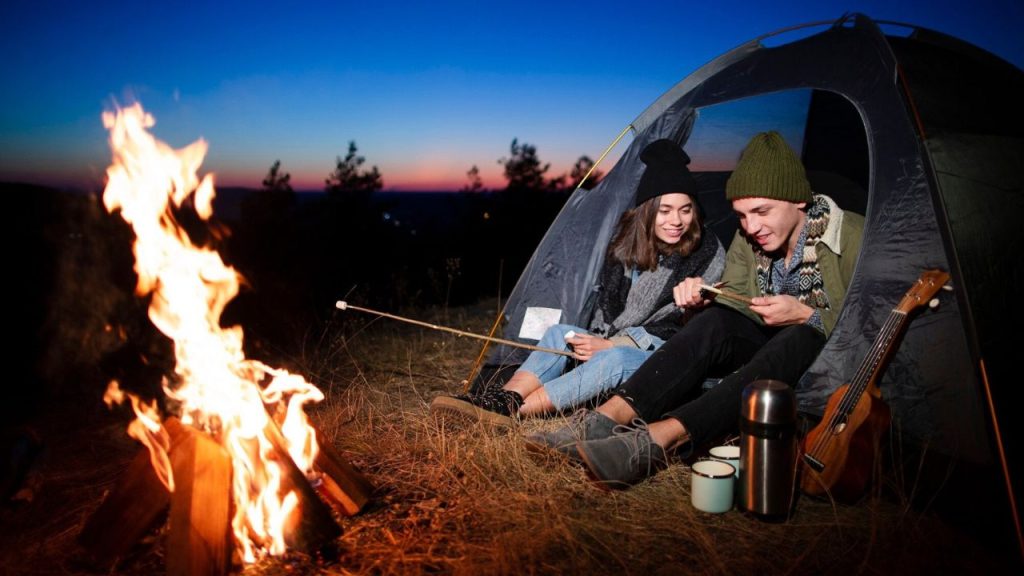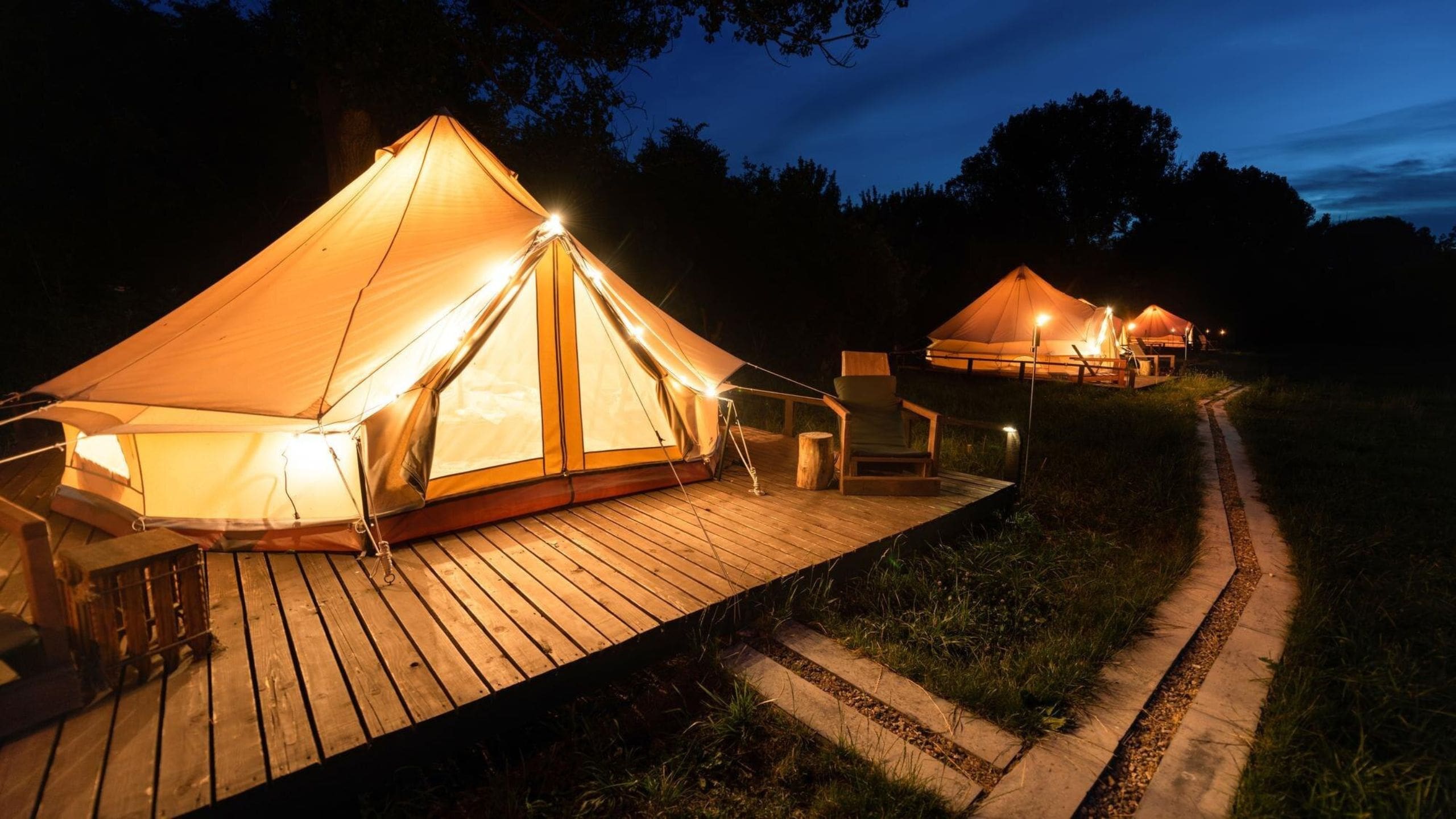As an avid camper, I’ve spent countless nights under the stars, enjoying the beauty of nature. However, one aspect of camping that can quickly turn a pleasant experience into a nightmare is dealing with pesky bugs.
Over the years, I’ve learned a variety of effective methods to keep insects at bay, allowing me to fully immerse myself in the great outdoors without the constant annoyance of bugs. In this article, I’ll share my top tips and tricks for keeping bugs away while camping.
Understanding Common Camping Bugs
Before diving into the solutions, it’s essential to know your enemy. Some of the most common bugs you’ll encounter while camping include:
1. Mosquitoes
These notorious bloodsuckers are not only annoying but can also transmit diseases like West Nile virus and Zika virus.
2. Ticks
Ticks are tiny arachnids that can carry serious illnesses such as Lyme disease and Rocky Mountain spotted fever.
3. Flies
Flies can be a nuisance, buzzing around your face and landing on your food.
4. Ants
While generally harmless, ants can quickly invade your campsite in search of food, getting into your supplies and causing a mess.
5. Spiders
Although most spiders are not dangerous, some species like the black widow and brown recluse can deliver painful, sometimes venomous bites.
Preventive Measures
1. Choose the Right Campsite
When selecting a campsite, opt for locations away from standing water, such as lakes, ponds, and swamps, as these areas tend to have higher mosquito populations. Additionally, avoid setting up camp near tall grass, bushes, and dense vegetation, which can harbor ticks and other insects.
2. Keep Your Campsite Clean
Bugs, especially ants and flies, are attracted to food waste and odors. To minimize their presence, keep your campsite clean and tidy. Properly dispose of trash in sealed bags, and store food in airtight containers. Clean up any spills or crumbs immediately, and avoid leaving dirty dishes or cooking equipment out in the open.
3. Use Insect Repellents
One of the most effective ways to keep bugs at bay is by using insect repellents. Look for products containing DEET, picaridin, or oil of lemon eucalyptus, as these active ingredients have been proven to deter a wide range of insects. Apply the repellent to exposed skin and clothing, following the manufacturer’s instructions carefully.
4. Wear Protective Clothing
When camping in buggy areas, wearing protective clothing can significantly reduce the likelihood of insect bites. Opt for long-sleeved shirts, long pants, and socks to minimize exposed skin. Light-colored clothing can also help you spot ticks more easily. Consider treating your clothing with permethrin, an insecticide that repels and kills bugs on contact.
5. Use Mosquito Nets
Mosquito nets are an excellent way to protect yourself from bites while sleeping or relaxing in your tent. Choose a net with a fine mesh and ensure it’s properly secured to keep bugs out. For added protection, consider using a net treated with insecticide.
Natural Bug Repellents

If you prefer to avoid synthetic chemicals, there are several natural bug repellents you can use to keep insects away:
1. Essential Oils
Certain essential oils, such as citronella, peppermint, lemongrass, and eucalyptus, have insect-repelling properties. Mix a few drops of these oils with a carrier oil like coconut oil and apply to your skin. You can also add these oils to a diffuser or candle to create a bug-repelling aroma around your campsite.
2. Citrus Peels
Rubbing citrus peels, such as lemon or orange, directly on your skin can help deter mosquitoes and other bugs. The strong scent of citrus is unappealing to many insects.
3. Smoke
Burning campfire smoke can help keep bugs away, as many insects are deterred by the scent and irritation caused by smoke. Sit near the campfire, or consider using a portable smoke diffuser or candle to create a bug-repelling barrier.
4. Neem Oil
Neem oil, derived from the neem tree, has insecticidal properties and can be used as a natural bug repellent. Mix a few drops of neem oil with a carrier oil and apply to your skin or clothing.
Dealing with Bug Bites
Despite your best efforts, you may still encounter some bug bites while camping. Here’s how to deal with them:
1. Clean the Bite
Wash the affected area with soap and water to remove any dirt or bacteria that could cause infection.
2. Apply a Cold Compress
To reduce swelling and itching, apply a cold compress or ice pack to the bite for 10-15 minutes at a time.
3. Use Antihistamines
If you experience severe itching or allergic reactions, take an oral antihistamine to help relieve symptoms. Topical anti-itch creams can also provide relief.
4. Monitor for Symptoms
Keep an eye on the bite for any signs of infection or serious reaction, such as fever, difficulty breathing, or severe swelling. Seek medical attention if symptoms worsen or persist.
FAQ
What is the most effective insect repellent for camping?
The most effective insect repellents contain DEET, picaridin, or oil of lemon eucalyptus. These active ingredients have been proven to deter a wide range of insects, including mosquitoes and ticks. Always follow the manufacturer’s instructions when applying insect repellent.
How can I keep bugs out of my tent while camping?
To keep bugs out of your tent, ensure that all zippers and openings are properly closed. Use a mosquito net over your sleeping area, and consider treating your tent with permethrin, an insecticide that repels and kills bugs on contact. Keep your tent free of food waste and odors, which can attract insects.
Are there any natural alternatives to chemical insect repellents?
Yes, there are several natural alternatives to chemical insect repellents. Essential oils like citronella, peppermint, and eucalyptus have insect-repelling properties. Citrus peels, campfire smoke, and neem oil can also help deter bugs. However, keep in mind that natural repellents may not be as long-lasting or effective as chemical-based products.
How do I remove a tick safely?
To remove a tick safely, use fine-tipped tweezers to grasp the tick as close to the skin’s surface as possible. Pull upward with steady, even pressure, taking care not to twist or jerk the tick, as this can cause the mouthparts to break off and remain in the skin. After removing the tick, clean the bite area and your hands with rubbing alcohol or soap and water.
What should I do if I develop a severe reaction to a bug bite while camping?
If you experience symptoms of a severe reaction to a bug bite, such as difficulty breathing, hives, or swelling of the face, lips, or throat, seek medical attention immediately. If you have a known allergy to insect bites, always carry an epinephrine auto-injector (EpiPen) and wear a medical alert bracelet when camping.
Conclusion
Camping is a wonderful way to connect with nature and enjoy the great outdoors, but dealing with bugs can put a damper on the experience. By following the tips and techniques outlined in this article, you can significantly reduce your encounters with pesky insects and enjoy a more comfortable camping trip.
Remember to choose your campsite wisely, keep your area clean, use insect repellents, wear protective clothing, and consider using natural bug-repelling methods. If you do experience bug bites, know how to treat them properly and monitor for any signs of severe reactions.
With a little preparation and knowledge, you can keep bugs at bay and focus on what matters most – enjoying your time in nature. Happy camping!

Hi there! I’m John W. Perkins writer and Founder howmp.com. As a passionate outdoorsman and travel enthusiast, I’ve made it my mission to share my experiences and knowledge with fellow adventurers like you.

